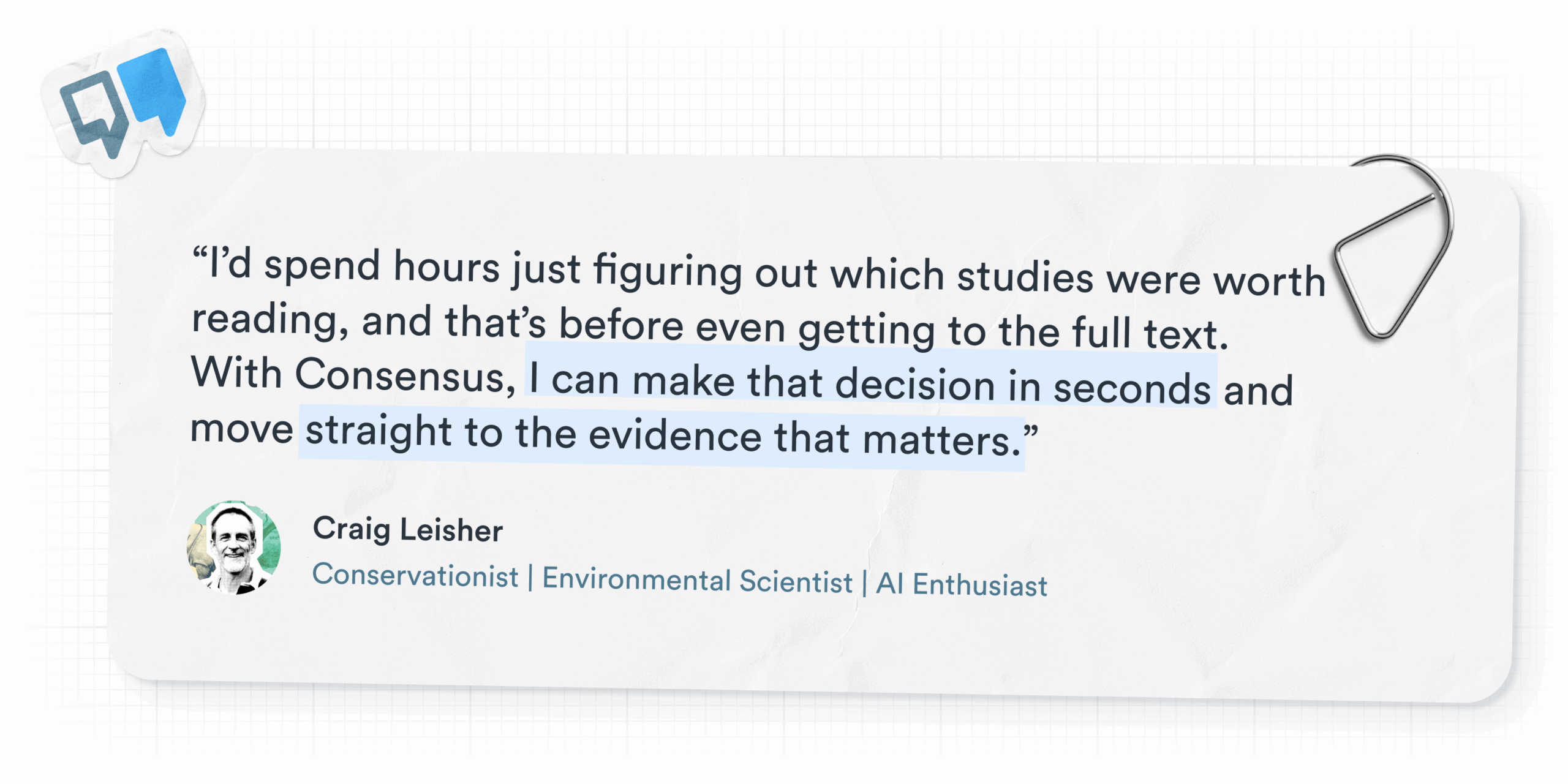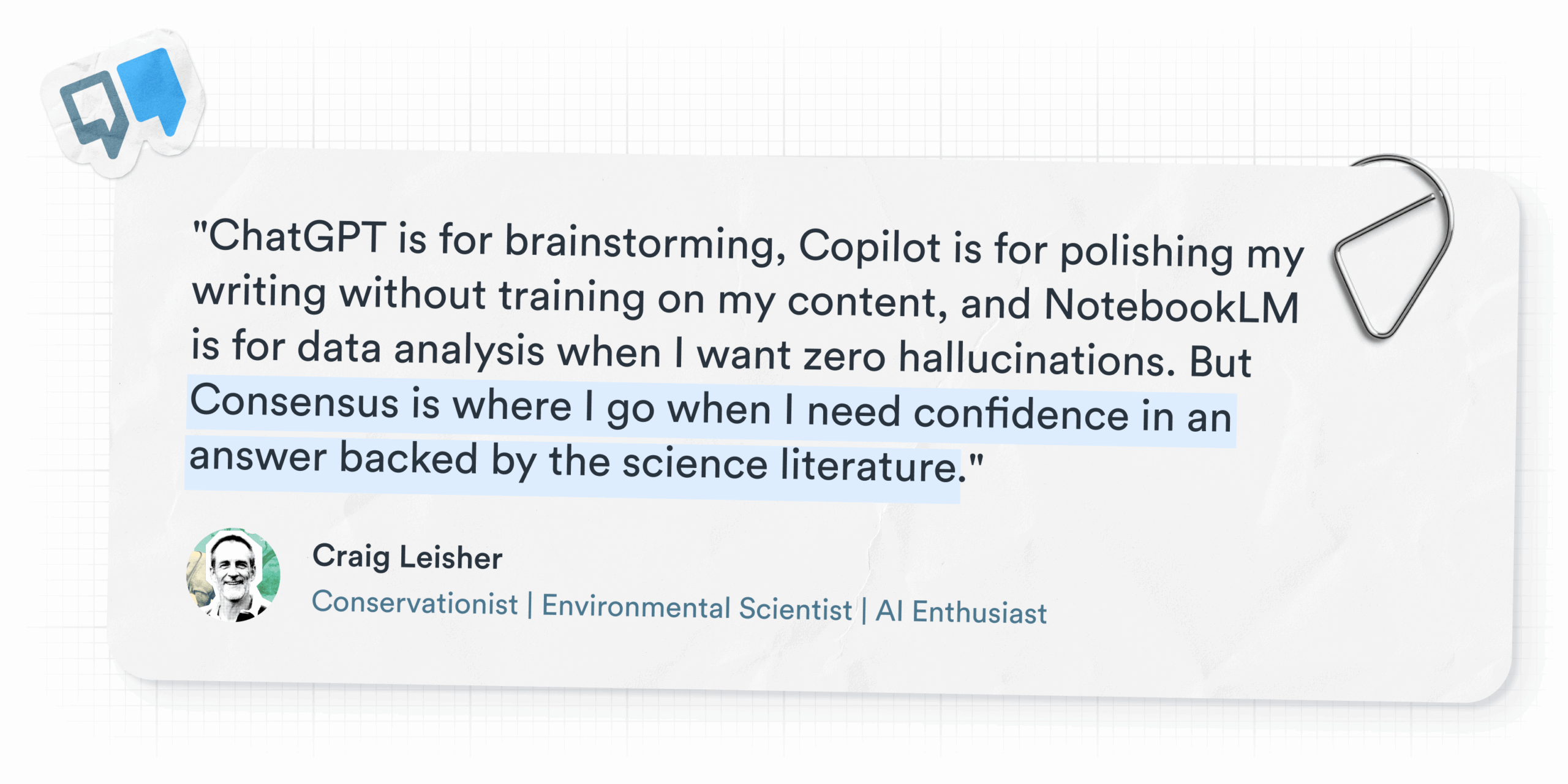How one conservationist is using AI to transform how we engage with scientific literature
Craig Leisher has spent the past three decades working in conservation, including more than 15 years with The Nature Conservancy, where he now serves as Portfolio Director for Africa. His work sits at the intersection of environmental science and policy. He focuses on identifying large-scale ecological risks, understanding their impact on communities, and integrating that knowledge into actionable conservation strategies. His career has taken him from off-grid cabins in the Maine woods—where he lived with his family for a year, heating entirely with wood and homeschooling three young sons—to scuba-diving three miles into a Vietnamese cave and discovering a new species of blind fish, later named after his dive buddy, Schistura mobbsi.
For much of his career, Leisher conducted research the conventional way: through extensive database queries, manual reviews, and citation management software. It was time-consuming, often inefficient, and poorly suited to the increasing scale and urgency of the problems he was trying to address. Over the past year, his process has changed significantly. The reason is a relatively new AI-powered search engine called Consensus.

Instead of relying solely on keyword searches in databases like Web of Science or Google Scholar, Leisher now starts his research with Consensus. He poses a detailed question to Consensus, reviews the summaries provided, reads the abstracts, downloads the full texts, and imports them into EndNote for annotation.
“I can do in four days what used to take four weeks," he said. “The speed is critical, but so is the precision.”
Recently, Leisher was tasked with writing a situation analysis on biodiversity threats across Africa. To do so, he needed to gather insights on complex topics such as zoonotic disease, freshwater degradation, and infrastructure development. These areas often produce rapidly evolving research, spread across multiple disciplines and journals, making it challenging to piece together a comprehensive view.
Using Consensus, he was able to quickly identify peer-reviewed papers, each accompanied by a brief summary and citation, and then move through them methodically: posing a compound question, scanning the summary, reading the abstract, downloading the PDF, and importing it into EndNote for annotation.
“I’m not using it to tell me what matters,” he explained. “I already know that. I use it to find the most relevant sources to support the claims I need to make.”
The result was a 4,600-word report, completed in under a week—a process that once would have taken a month. Today, Leisher estimates that about half of all his time spent with AI tools is in Consensus, more than with ChatGPT, Copilot, or NotebookLM, because rapidly finding and validating existing knowledge is the most critical step in his work.

Expanding Access and Impact
As Leisher refined his own workflow, he also began encouraging others to adopt the tool. He has since introduced Consensus to dozens of colleagues and students, many of whom now use it regularly. He sees particular promise in deploying the tool among graduate students, policymakers, and conservation practitioners who need to get up to speed on unfamiliar topics quickly without compromising depth.
In fact, he already integrates Consensus into the master’s-level research courses he teaches at VU Amsterdam. Students begin by scoping their research questions using the tool, then move on to designing methods and, finally, using Consensus again in the discussion phase to compare their findings with prior studies.
He is also interested in how tools like Consensus might support more equitable approaches to conservation. Much of his own research focuses on community governance, particularly the inclusion of women in natural resource decision-making. “The science has to be there,” he said, “but it also has to be accessible to people who don’t have the time or institutional support to spend weeks in the literature.”
Consensus, in his view, is a step toward solving that problem. Not by replacing scientific expertise, but by making it easier to access and apply.
“Consensus doesn’t replace expertise,” Leisher said. “But it makes it possible to get to the science faster and that changes everything.”

Craig’s Favorite Consensus Features
Craig depends on these features to speed up his work, stay organized, and ensure his research is grounded in evidence.




